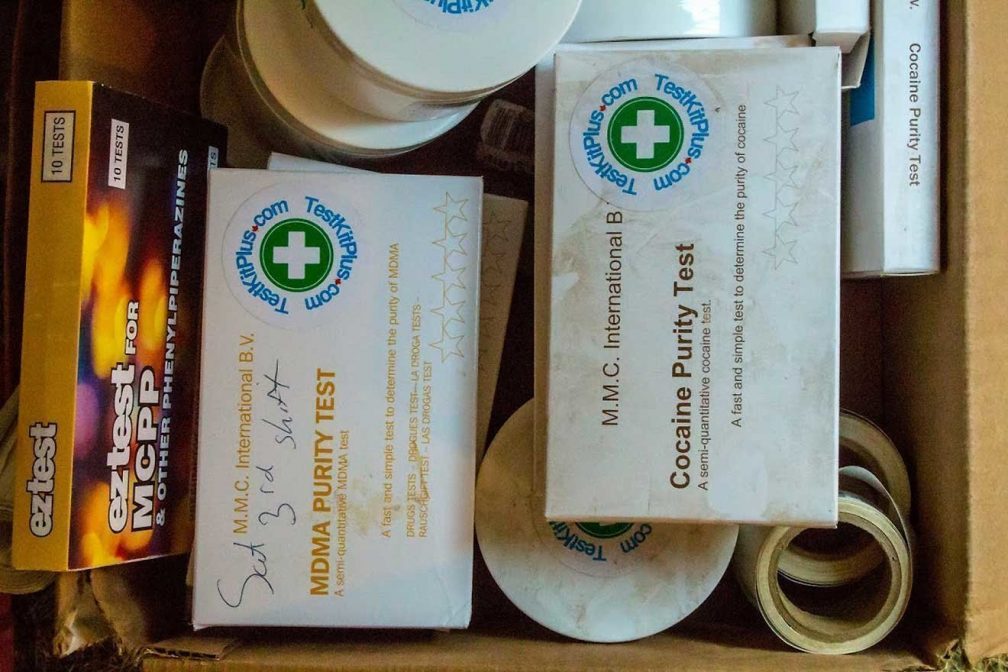
We spent a day at the drugs testing station at Shambhala festival in Canada
"My mom told me to be safe, so I came to Shahmbala"
A young man named Aaron stands under the blistering Friday sun, nervously awaiting a chance to speak with someone at the Harm Reduction tent. As his turn nears, he carefully produces a small square of tinfoil from his pocket and unfolds it to reveal six tabs of what he believes to be high-quality blotter acid.
After sacrificing a miniscule portion of a tab to the tester, Aaron anxiously waits as the results come back. Negative. There's no LSD in the tabs. Further testing reveals them to contain 25i, which is a research chemical that has been known to cause fatalities in extreme cases. Disappointed, but simultaneously relieved to bodyswerve a potentially fatal mistake, he tosses the blotters in the amnesty box without hesitation.
"I wanted to take acid, not this 25i shit", he says, before sauntering off to the festival ground, presumably on the hunt for the real deal.
The explosive rise of festival culture in recent years has brought with it a dramatic spike in drug misuse and overdoses, with the two tragedies reported at HARD Summer two weeks ago bringing the spotlight on dance music culture once more. Forward-thinking festival coordinators have sought to mitigate these tragedies by providing convenient access to drug education and testing. One of the events at the forefront of this movement is Shambhala, which strives to provide the safest possible environment for responsible drug use, though curiously prohibits alcohol on the festival ground.
The Harm Reduction station (a term ubiquitously used to describe the approach of drug education over abstinence) is operated by ANKORS. 14 years ago, the organization expanded from its original goal of halting the spread of HIV/AIDS to provide free and easy drug testing, non-judgmental assistance and clean paraphernalia at festivals like Shambhala, operating independently but in cooperation with the event's medical services.
This openness at an event translates to a considerably more responsible, laidback vibe. This year marked the 18th Shambhala festival and it continues to cement its place as one of the most forward-thinking and progressive events on the North American calendar. Thanks to a festival-wide ban on alcohol and year-round stages that don't require building permits, corporate sponsorship is almost non-existent and government intervention is minimal at best. DJs and promoters encourage everyone to pick up trash, and look out for anyone that might be struggling to cope with all that freedom.


